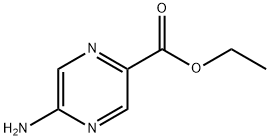We've all heard about the concept of treating allergies by exposing the body to small amounts of the allergen over time. But when it comes to peanut allergies, which can be extremely severe, does this method hold up? How exactly does this treatment work? Is it safe for everyone, especially children who are more vulnerable? What are the potential risks involved? And how long does one need to undergo this treatment to see real results? Can it completely eliminate the allergy, or just reduce the severity of reactions?
Treating Peanut Allergies with the Allergen Itself: Does It Really Work?
Related Products More >
-
- 9003-05-8
- USD 30.0000
- 25kg
-
- 9003-05-8
- USD 30.0000
- 25kg
-
- 108-80-5
- USD 50.0000
- 50kg
-
- 9001-62-1
- equest For Quotation
-
- 129938-20-1
- equest For Quotation



 沪ICP备2021018848号-5
沪ICP备2021018848号-5

The inspiration for this research came from the breakthroughs in the treatment of milk and egg allergies. Previously, it was discovered that many people with milk and egg allergies can tolerate these ingredients in baked goods. This discovery has changed the global approach to treating such allergies. The research team noticed that more than half of peanut - allergic patients can tolerate half a peanut or more, so they started exploring new treatment ideas. In the past, the main way to deal with food allergies was to completely avoid allergens. Although the US Food and Drug Administration has approved some treatment options, they are mainly for patients with severe peanut allergies (those who have reactions after eating less than half a peanut).
The new research shows that for children with mild peanut allergies, peanut butter available in supermarkets can be used for treatment. Approximately 800,000 such children in the United States may benefit from this simple treatment plan. The research team recruited 73 children aged 4 to 14 for the experiment. The participants were randomly divided into two groups. The treatment group started with 1/8 teaspoon of peanut butter per day and gradually increased the dose under the guidance of doctors, reaching 1 tablespoon after 18 months. The control group continued to avoid peanut products. There were no serious adverse reactions when the treatment group ate peanut butter at home. The final test results showed that all 32 children in the treatment group could tolerate 9 grams of peanut protein, which is equivalent to 3 tablespoons of peanut butter. In contrast, only 3 out of 30 children in the control group could tolerate this dose. Moreover, this tolerance is not only for peanut butter but also for other peanut products. When the treatment group continued to eat 2 tablespoons of peanut butter per week for 16 weeks and then stopped completely for 8 weeks, most children still maintained their tolerance to peanuts, proving the durability of the treatment effect.
So, answering the question, treating peanut allergies with the allergen itself is effective for children with mild peanut allergies. Just as this research shows, through a scientific approach of gradually increasing the intake of peanut butter under the guidance of doctors, children can desensitize safely. However, it must be remembered that this treatment should be carried out under the guidance of doctors. Parents should never try it at home on their own, as it is very dangerous. In the future, the research team also plans to study how to more safely identify children with mild allergies, and they also want to apply this method to other allergenic foods.
Theoretically, treating allergies with the allergen is a bit like the principle of a vaccine. As we all know, a vaccine injects weakened or inactivated viruses into the body, allowing the immune system to get to know this "enemy" in advance. The next time a real, powerful virus comes along, the immune system can react quickly and eliminate it. Treating allergies with the allergen works in a similar way. It's about exposing the body to a small amount of the allergen, allowing the immune system to gradually adapt to it and no longer over - react as if it were a "hostile invader."
However, in practice, treating peanut allergies with the allergen is no easy feat. Peanut allergies vary in severity, and the symptoms are also different. For people with mild peanut allergies, maybe accidentally eating a little peanut - containing food occasionally can cause some mild rashes, itchy mouth, or a bit of stomach discomfort. If treated with the allergen, perhaps by gradually increasing the exposure, the body might really be able to adapt and no longer be allergic. But for patients with severe peanut allergies, maybe even just smelling a little peanut odor or accidentally touching peanut products on the skin can trigger very serious allergic reactions, such as difficulty breathing and throat swelling. At this time, using the allergen for treatment is extremely risky.
Moreover, everyone's immune system is different, and the reactions to allergens also vary greatly. Some people have a more "sensitive" immune system, and a slightly higher exposure to the allergen may cause a very strong reaction. Some people have a relatively "sluggish" immune system, and they may adapt more easily. Therefore, it's very difficult to find a one - size - fits - all effective method for treating peanut allergies with the allergen. A personalized plan needs to be developed according to each person's specific situation.
In general, treating peanut allergies with the allergen itself has some theoretical possibilities, but in actual operation, there are many difficulties, and we must be extremely careful. After all, once an allergic reaction becomes severe, the consequences can be disastrous. Currently, more research and practice may be needed to determine whether this method is effective for peanut allergies, to what extent it is effective, and how to use it safely.